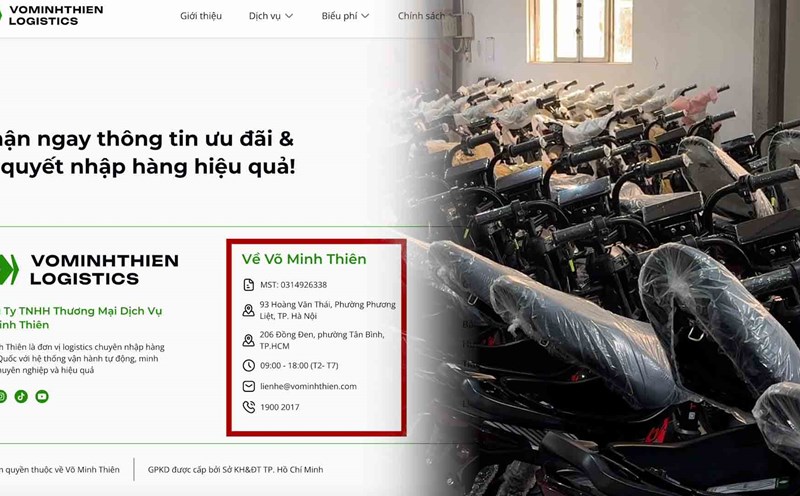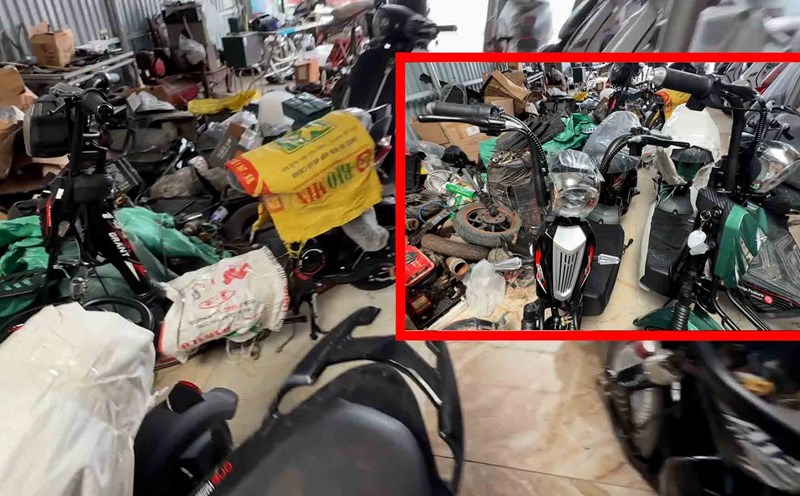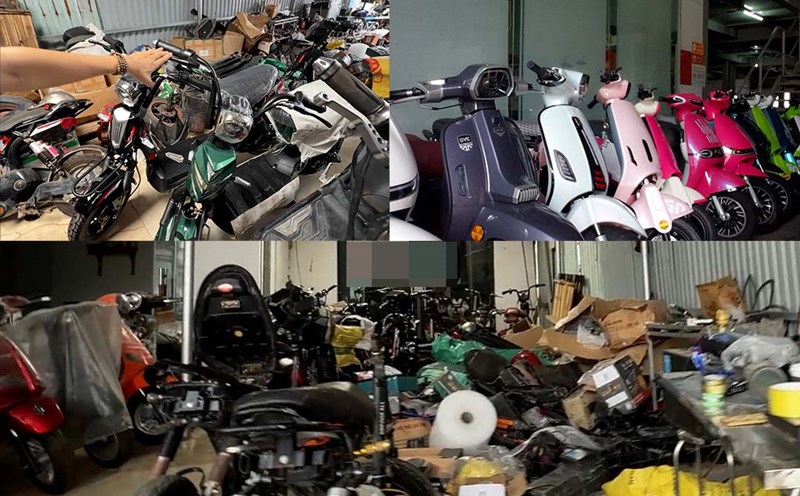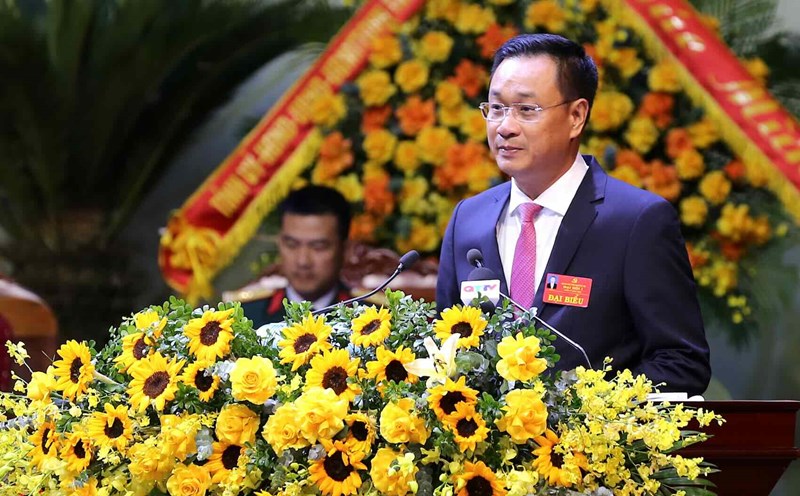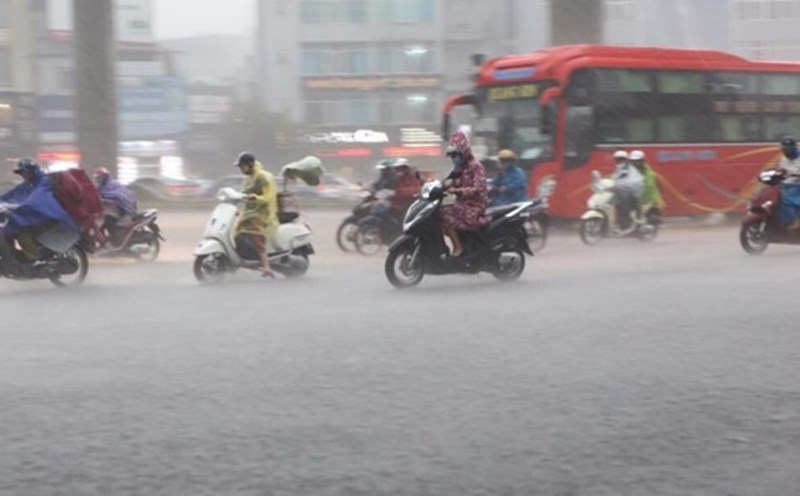Supporting un documented electric vehicle products to the market
Cheap electric bicycles and unregulated electric motorbikes are not only supplied by small, spontaneous businesses, but even in large, branded manufacturing facilities, unregulated electric vehicles are also a product that brings in significant profits.
According to the instructions of some sources, the reporter is known that the assembly workshop of Takumi Company (near Pho Noi, Hung Yen) is one of the addresses that used to provide paperless electric vehicles. This was mentioned by the owner of Vu Luong electric vehicle store (An Thi commune, Hung Yen) when the reporter came to the store as a distributor.
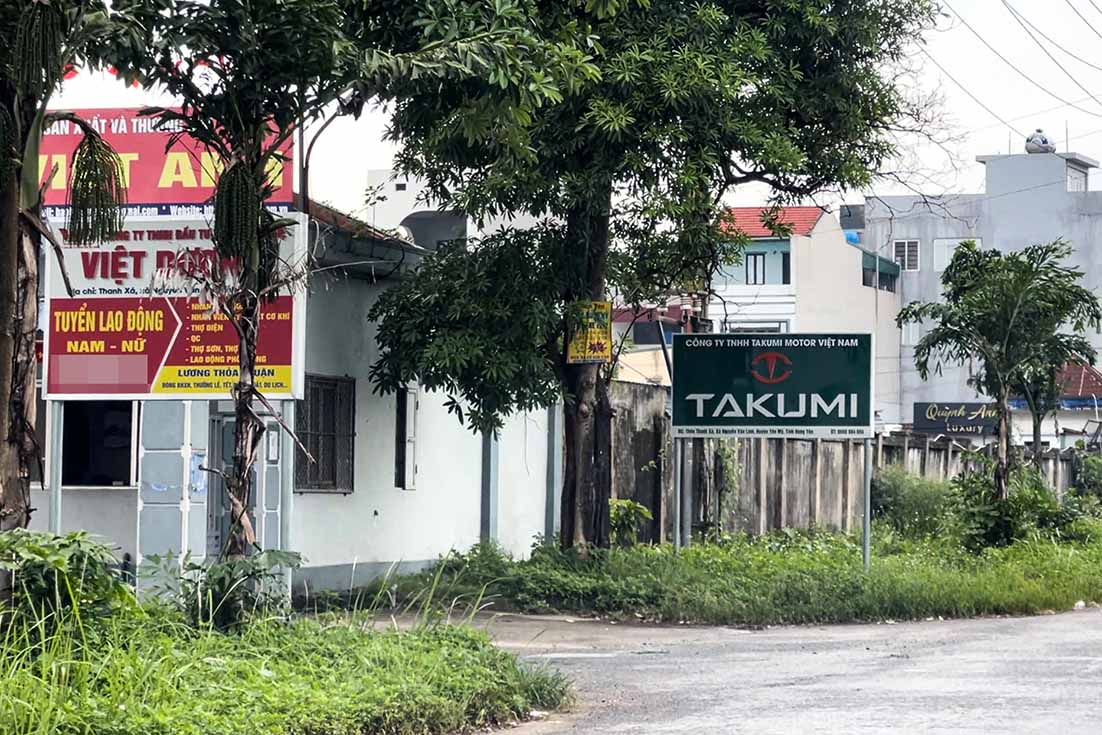
Present at Takumi Motor Vietnam Co., Ltd., we recorded hundreds, thousands of electric motorbikes being completely assembled and packed together in the factory premises, waiting for the factory departure date. A large space with modern machinery and a busy team of workers along the assembly lines.
According to an employee here, this workshop previously provided unregistered models to dealers in Hung Yen and some neighboring provinces. However, because it was inspected and had just been fined by the authorities, the company stopped assembling and trading this type of vehicle.
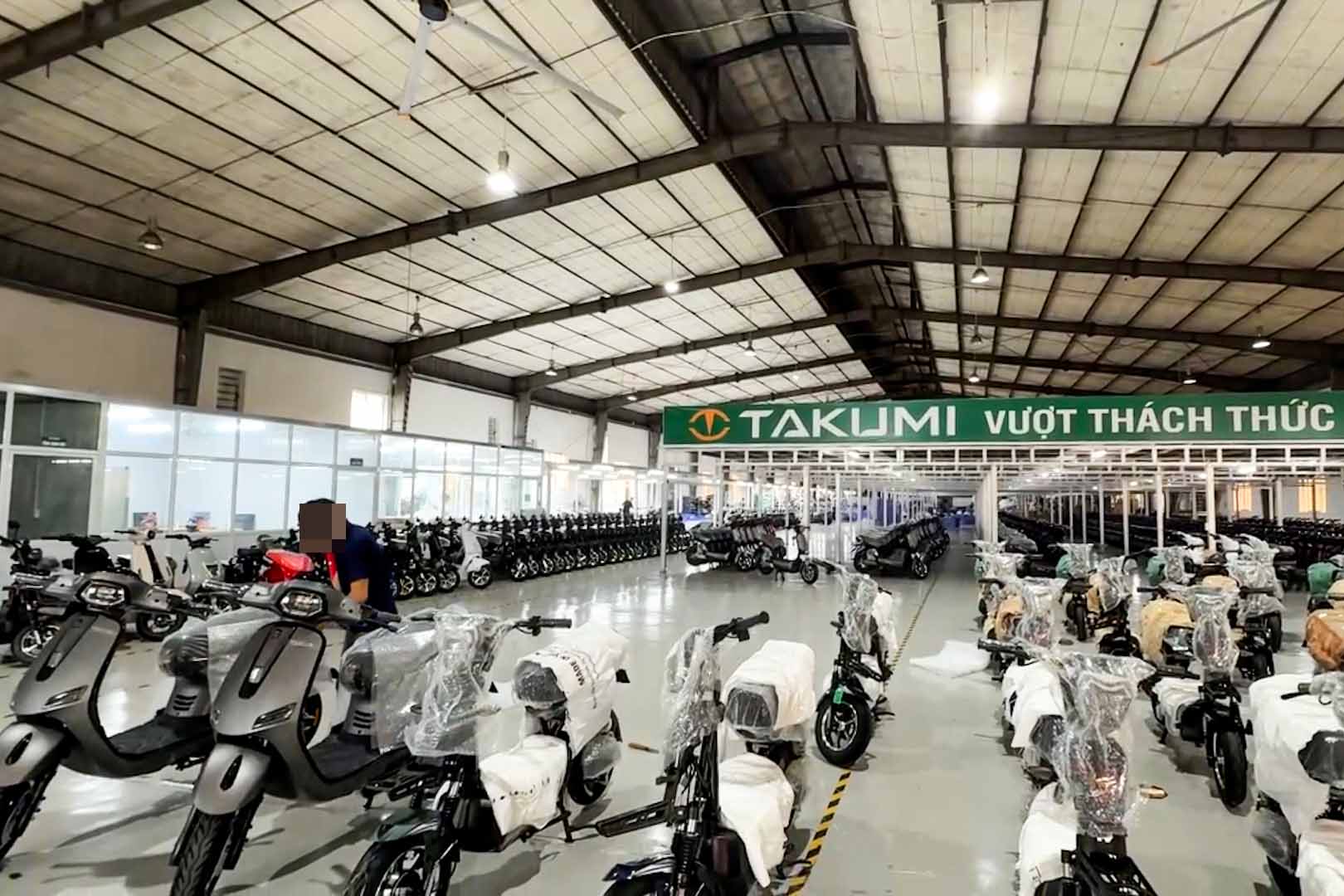
"Since the beginning of this year, many parties have been selling vehicles without documents. At that time, I also installed a series of these products, but by May 2025, they must be stopped. Because if the authorities discovered it, the factory would be completely closed, the production line would have to be re-inspected, and a fine of about 20 billion VND/time would be paid," the employee revealed.
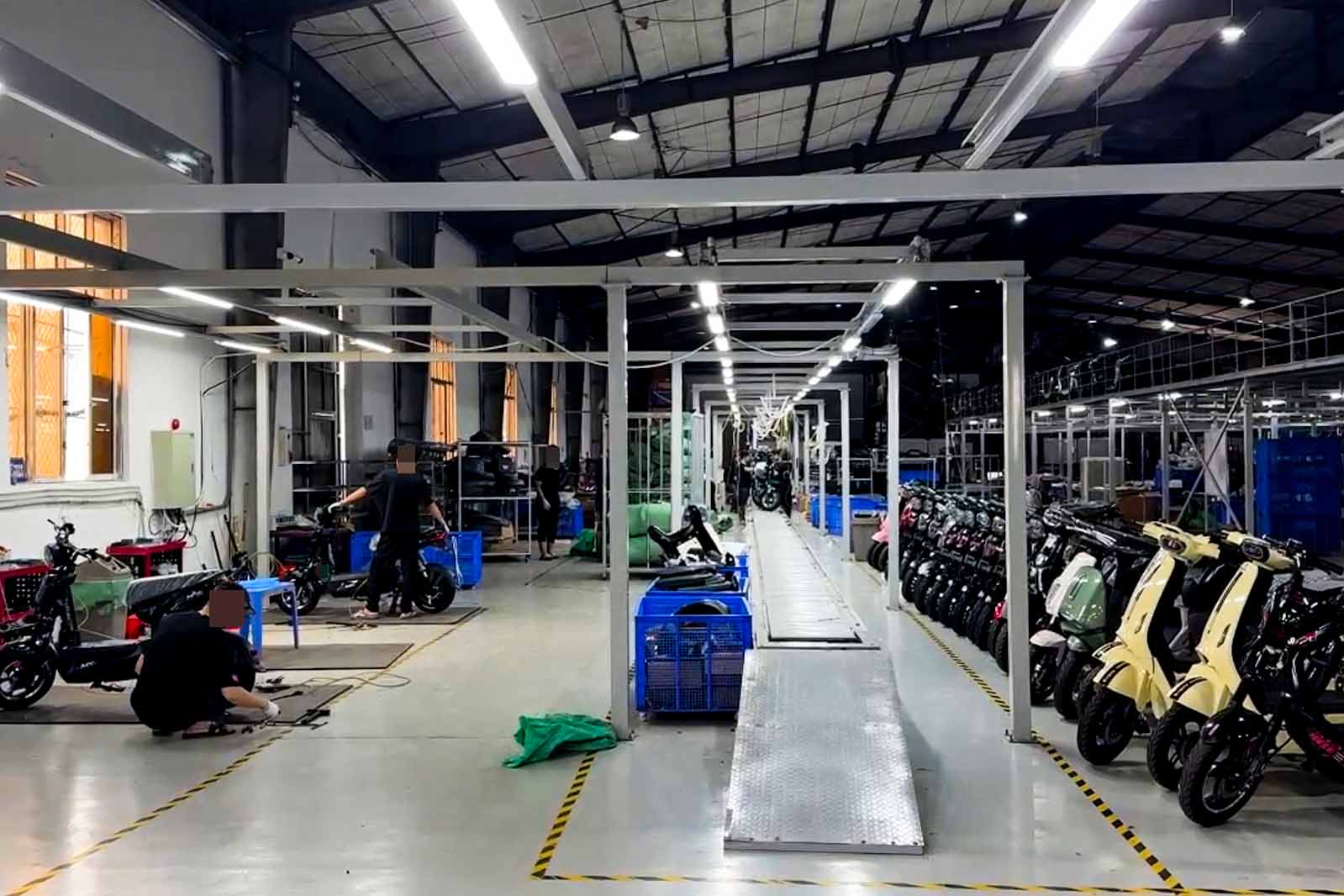
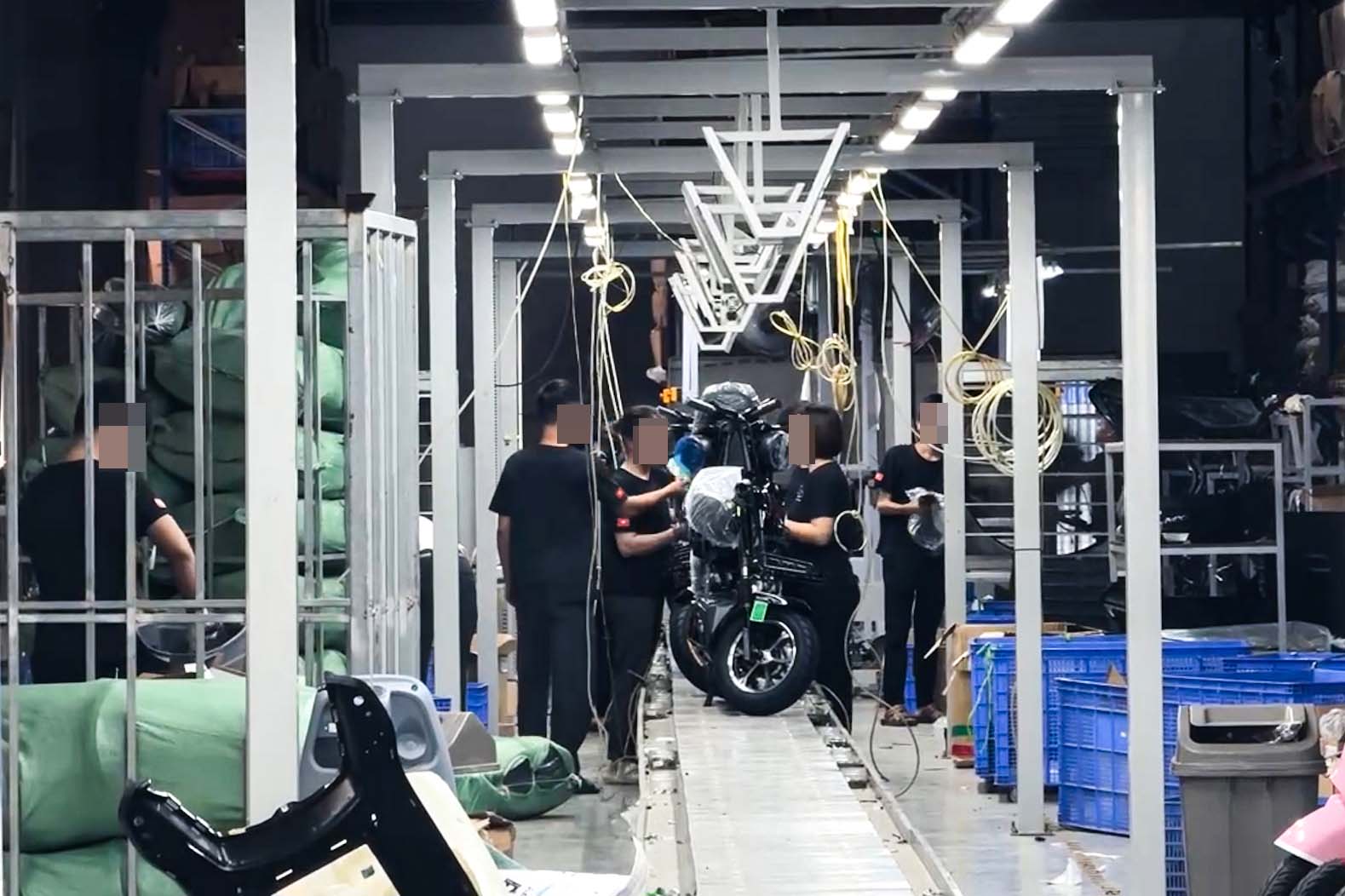
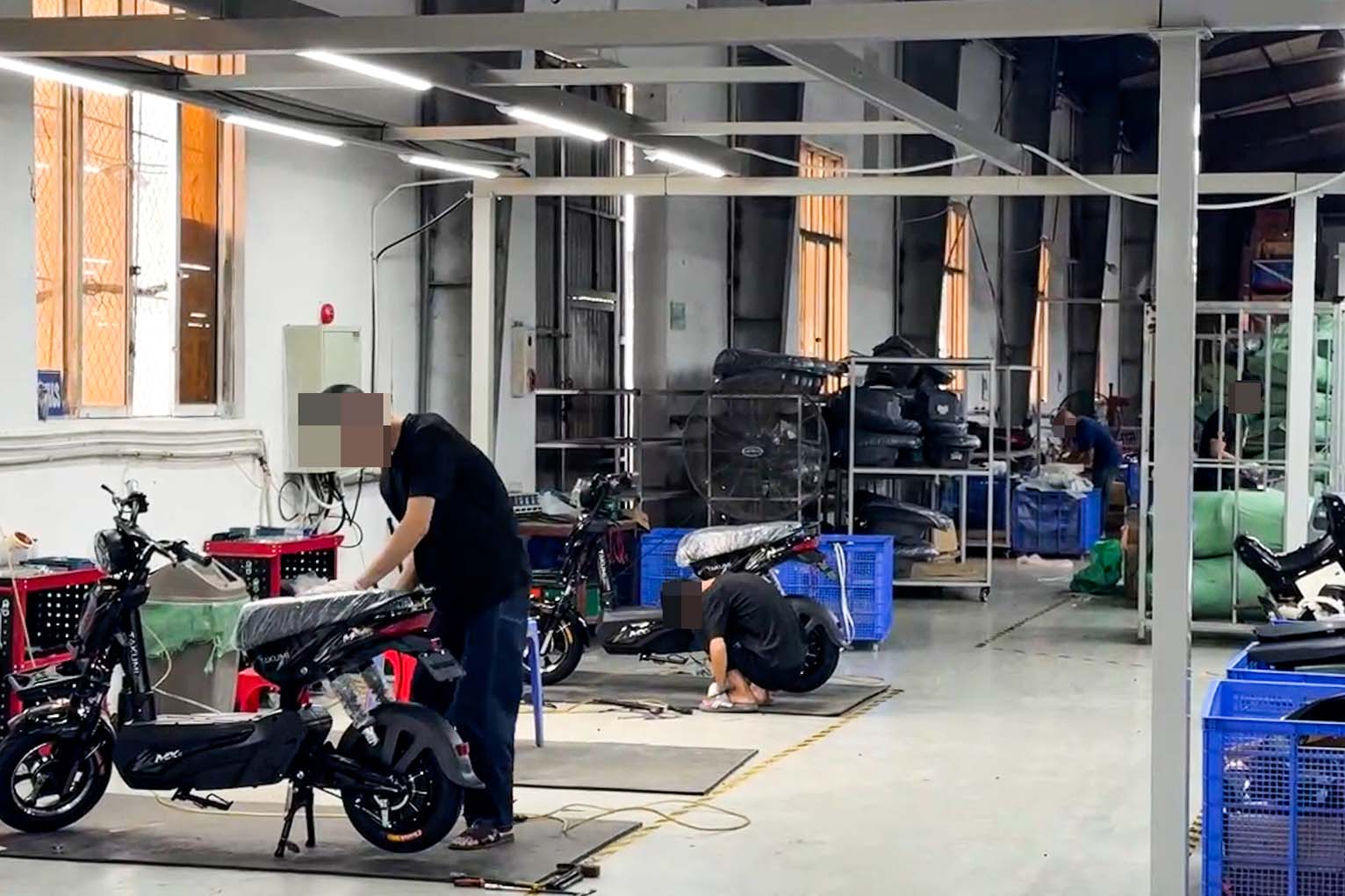
Currently, Takumi Company is producing 12 electric car models, each model is about 300, with the main line being fashion models such as two-seat cars, also known as "Hot girl VC" electric cars and "LX" electric cars.
According to this employee, all vehicles in the factory currently have full registration and documents. This is mandatory, because recently, agencies such as market management and tax have continuously checked product output and input, causing "floating" models to lose their place in the production line.
A reality is that market demand for unregistered vehicles is still very high. Distribution companies are still looking to buy because of the low price and ease of trading, while customers still prefer the "Hot girl VC" two-seat model.
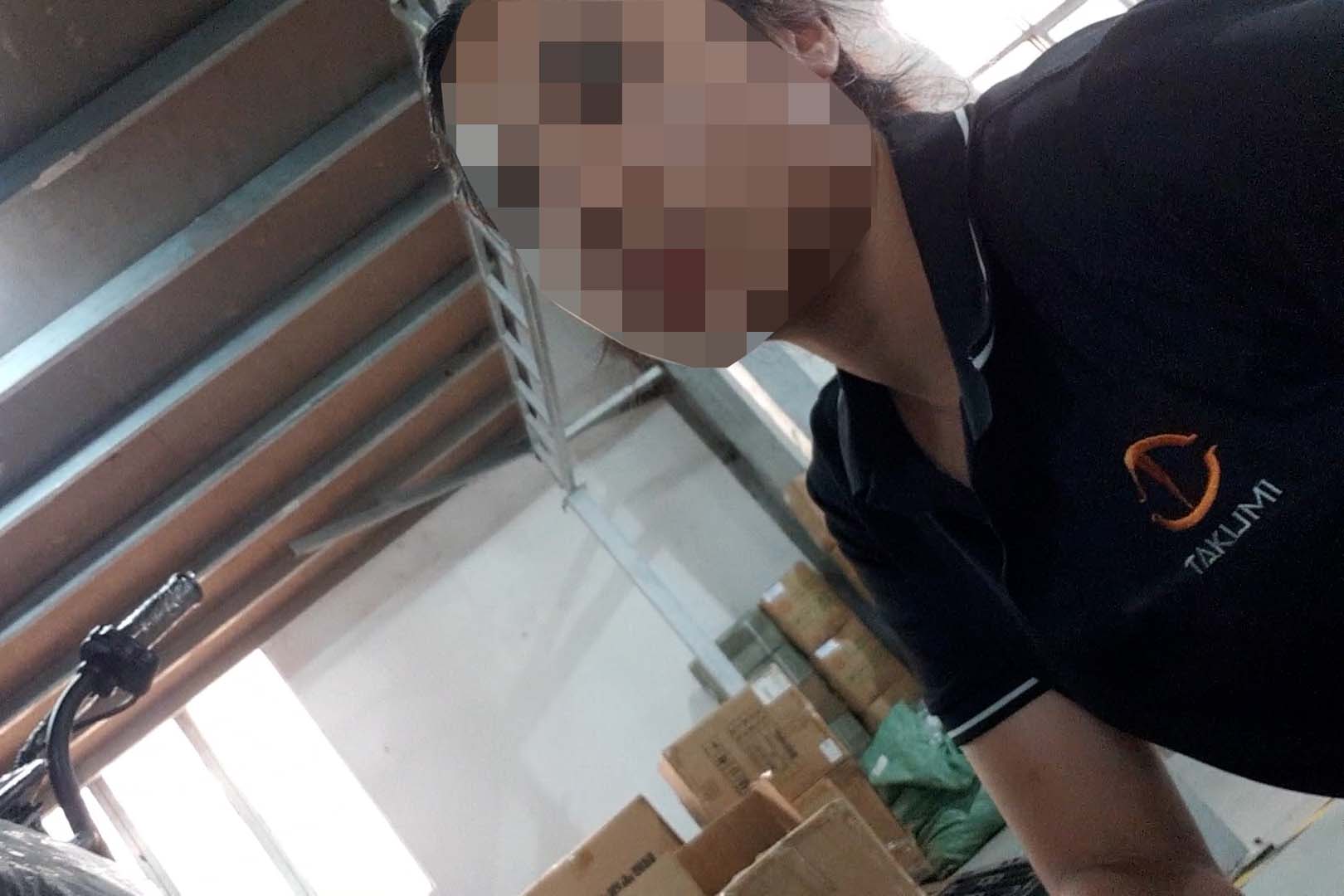
To balance market tastes and legal requirements, Takumi Company has chosen a flexible option of taking the vehicle for inspection but installing only one saddle, to ensure compliance with standards.
After completing the procedures, the "Hot girl VC" model will be brought to the factory to install additional seats, serving the actual needs of customers.
"Because this is a one-man vehicle, when inspected, it is not possible to arrange two original saddles. After meeting the standards, the new vehicle will be installed with an additional saddle for sale on the market, Takumi employee revealed.
This person also admitted that recently, the factory was handled because there were more than 10 cars without documents, leading to the suspension of the factory of electric vehicle products for more than a week, and also not allowing the vehicle to be assembled.
Chains that benefit, support poor quality, smuggled electric vehicles on the market
Because it brings great profits thanks to the market's tastes, in addition to on-site electric vehicle manufacturing and assembly plants and processing workshops without documents, there is also a network of businesses, brokers, transportation of electric vehicles and smuggled electric vehicle spare parts that are very "done to do".
Also famous on social networks for the service of receiving orders to buy completely smuggled electric vehicles from the northern border to customers in need, the case of Vo Minh Thien Trading and Service Company Limited ( Vo Minh Thien Company, headquartered at 93 Hoang Van Thai, Hanoi) is a typical example.
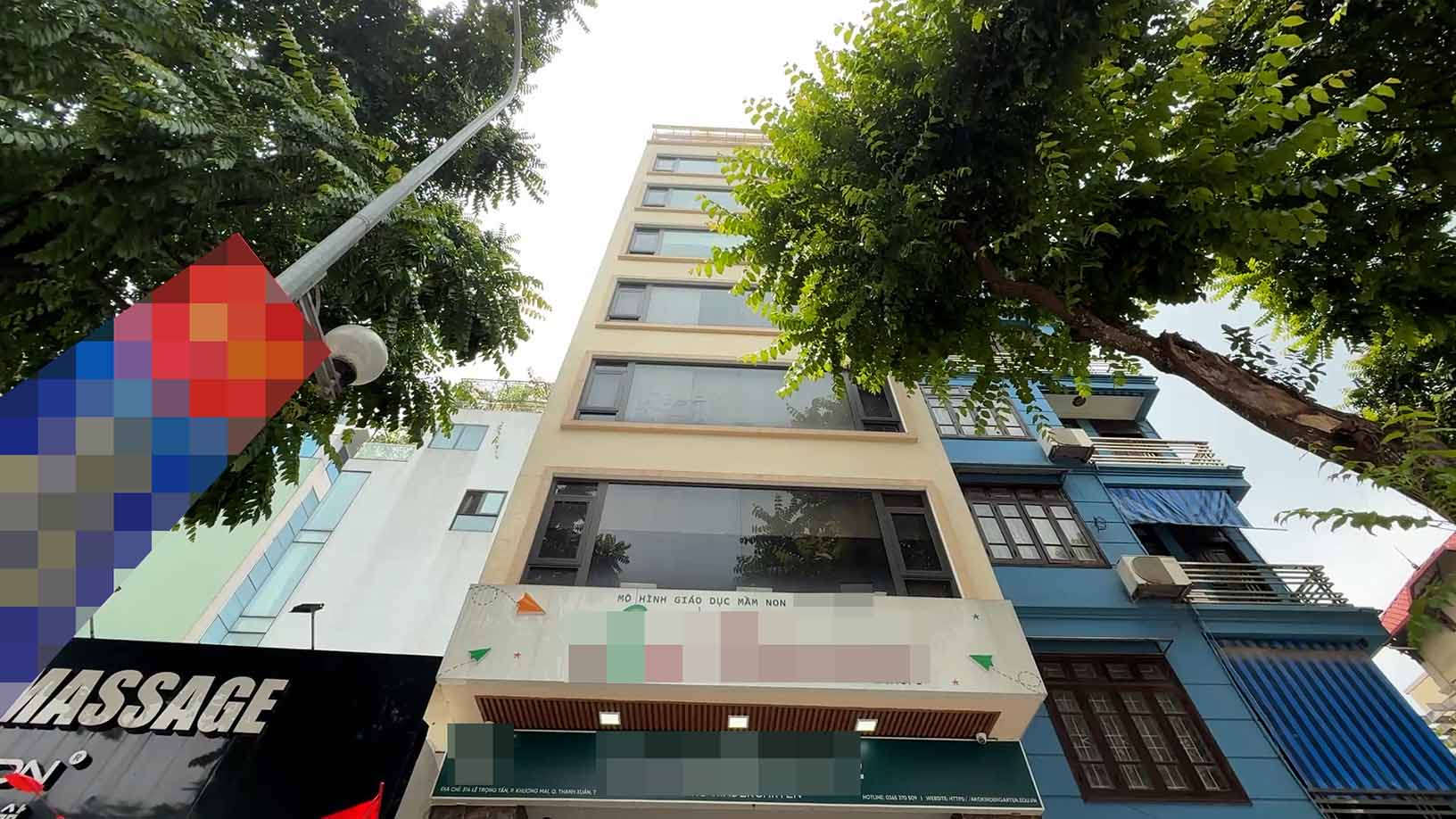
Known as a logistics company specializing in importing goods from China, when the reporter went to the above address, the company's staff instructed him to go to another location at 314 Le Trong Tan Street, about 2 km from the public address to discuss business.
Through observation, this facility is a 7-storey building with a signboard of a private kindergarten, with no signs of identification at all. Following the staff, we were taken to the 7th floor of the building, where the company's office was located.
Receiving reporters, a woman named Hong, claiming to be an employee in charge of receiving partners, said that electric bicycles and electric motorbikes were previously popular import items, accounting for a large proportion of orders. However, recently, when management agencies tightened taxes, inspected, and combated counterfeit and smuggled goods, companies were forced to limit them.
According to Hong, currently, if customers have a need, they can only import 1-2 cars at a time. If you go through the official route, the customs will check very carefully the registration and documents, if they are not complete, they will not be cleared. If you want to bring it back to Vietnam, you have to go through a small-scale route.
The female employee described that the popular way is to mix electric cars into other goods (such as furniture, household appliances or electronic devices), package them in a grocery style, then put them in a container to cover the customs eye.

"However, the inspection is still quite strict, if a large number of electric vehicles are discovered (10-20 without documents), the enterprise will be heavily fined. If there is too much import in the month, the customs will check and not allow further import. For goods such as electric vehicles, customers have to pay an additional 20% of the transportation fee, Hong revealed.
According to this female employee, due to the above risks, few units dare to import finished electric vehicles. Instead, smugglers are ready to import components from Guangzhou (China) and then bring them home for domestic assembly. This is a way to avoid strict inspection and can also move products to the market more safely.
Sub-ms such as gold-plated, tea mixed with legal ingredients
Continuing their journey to penetrate the market for buying and selling and assembling electric vehicles, a group of reporters from Lao Dong Newspaper went to Pho Noi (Hung Yen). LD Technology Development Company Limited has emerged as a focal point for importing electric vehicle spare parts and components for assembly.
Present here, the reporter recorded the inside of the factory filled with finished electric motorbikes and a series of spare parts and components lying around.
Among them are balanced electric vehicle models, which were revealed by the staff to "mainly go by unofficial routes to bring back to Vietnam".
A female employee said that the workshop is actually owned by two companies, Giang Nam Production, Trade and Service Company Limited and LD Technology Development Company Limited. Although there are different legal entities and representatives, both have the same owner behind them, a Chinese.

When asked about the origin and inspection status of the components in the warehouse, the female employee frankly admitted: "Whether the company is registered or not, the price is the same, customers can choose whatever they want. For example, lights, rings, mixers, etc. are all inspected, but the frame has some types of inspection, some types are not. When entering, there are customers who just want to install them for sale or use directly, while the complete vehicle registration and then get the license plate is up to the customer's decision."
A worker who is assembling electric vehicles at this workshop shared that the assembly process will encounter some problems, especially when the imported model frame often does not fully match the plastic case. Therefore, the technician was forced to chew, weld, and adjust the details. This is a stage that poses a potential risk of insecurity if the skills are not guaranteed.
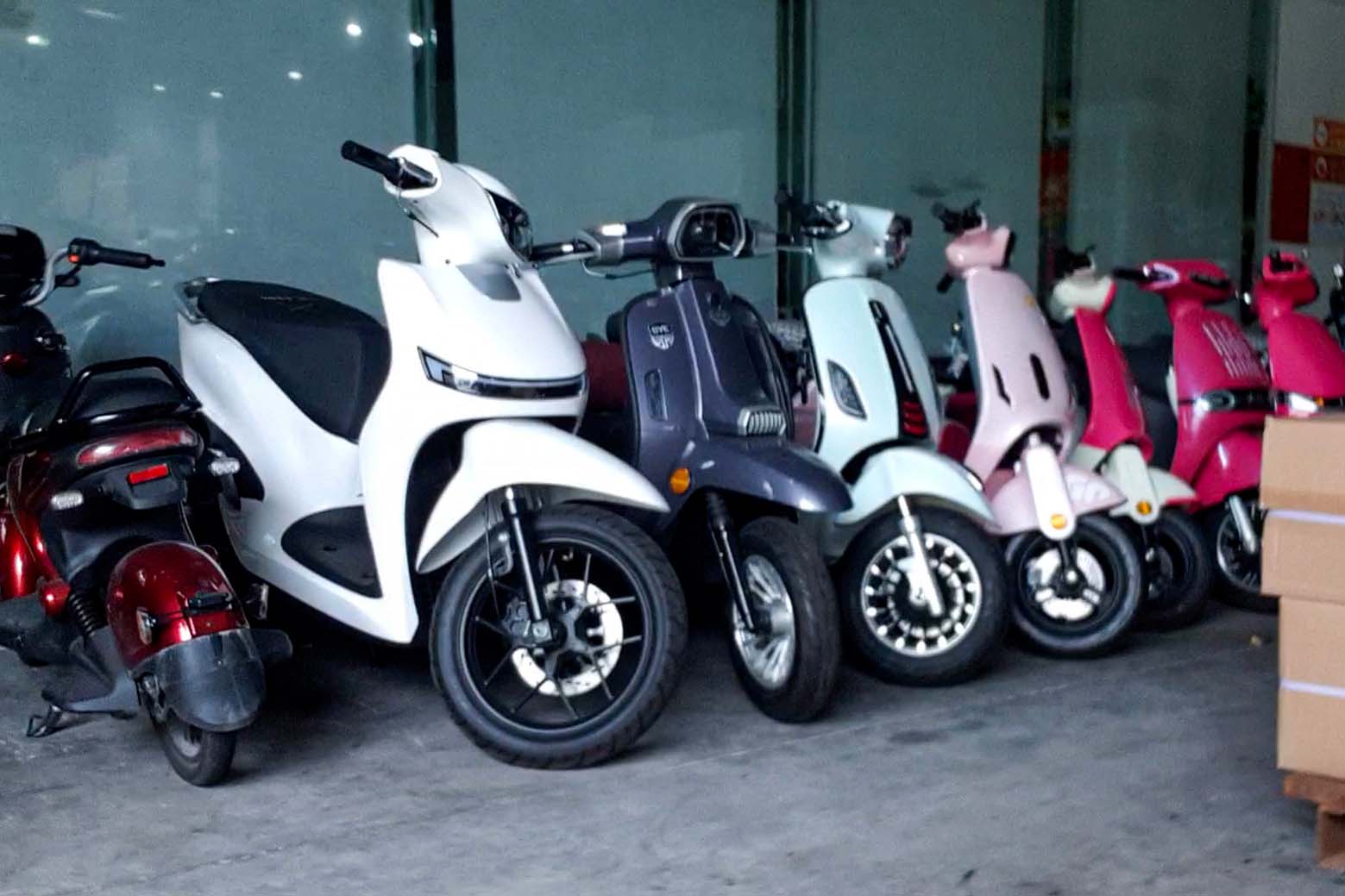
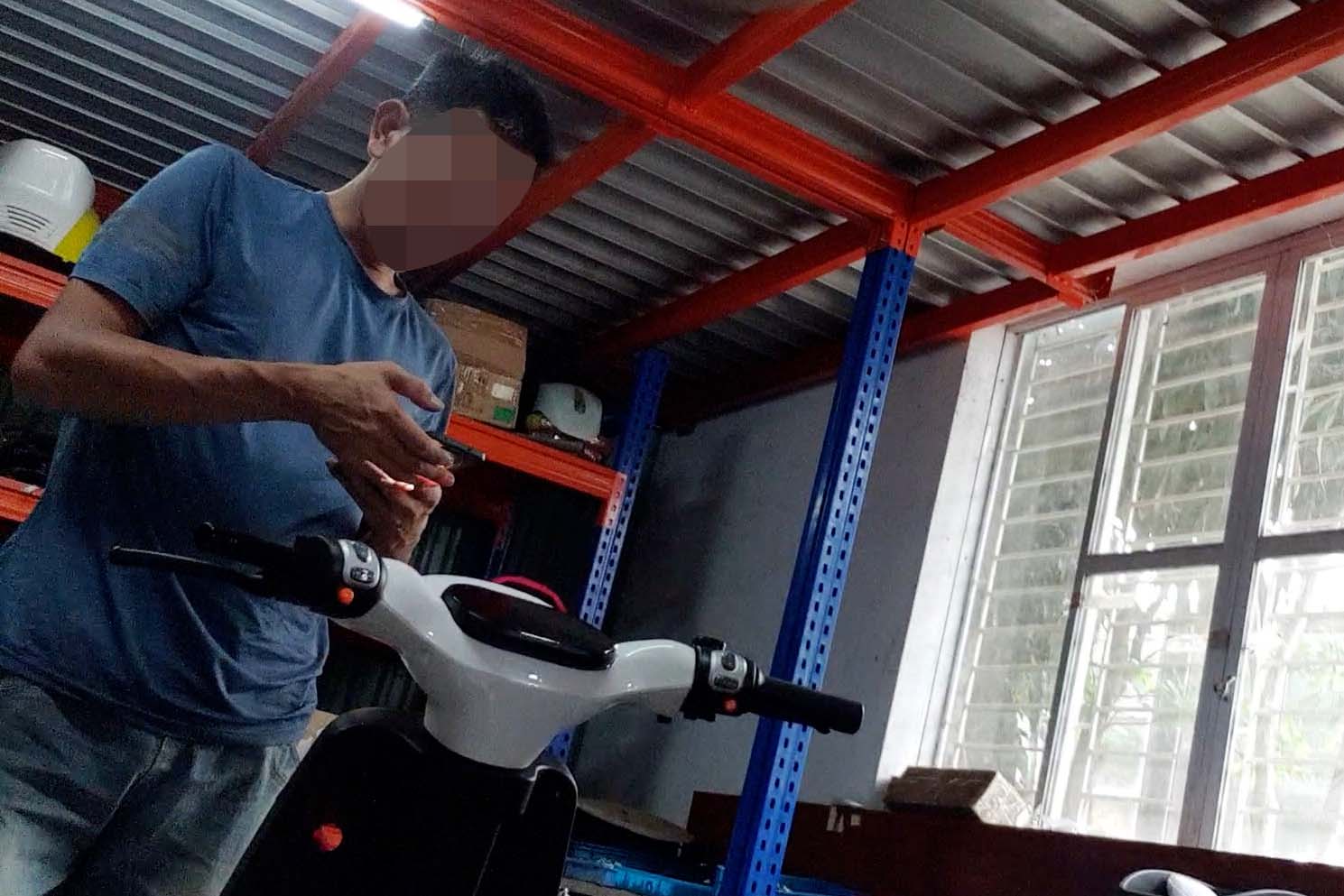
According to the company's staff, components of Chinese origin are imported in many forms, some with inspection, some without. When everything is mixed during the distribution process, quality assurance becomes an unknown.
According to QCVN 68:2013/BGTVT, electric motorbikes must be thoroughly inspected, any changes to the structure such as the installation of additional saddles are considered illegal renovation and may be subject to penalties and certificate revocation. Decree 100/2019/ND-CP clearly stipulates that the production or circulation of vehicles without registration or inspection is a violation, subject to fines, confiscation of vehicles and even suspension of operations.
Regulations on technical safety standards emphasize that batteries, batteries and electrical systems must meet standards; the use of floating, uninspected components is both a violation and poses a high risk of fire and explosion.
Talking to a reporter from Lao Dong Newspaper, a leading expert in the field of electric vehicles in the Vietnamese market assessed that using vehicles without inspection is a violation of the law and can be subject to administrative sanctions according to regulations.
These types of vehicles are not inspected by competent authorities for quality and safety. This can easily endanger the driver and other road users.
For electric motorbikes, batteries, batteries and wiring systems are the parts that play a vital role. If these parts are not strictly controlled for quality, the risk of fire and explosion is very high.
Illegal vehicles, self-assembled vehicles or used vehicles are often equipped with batteries of unknown origin that do not meet safety standards. When charged, these parts can overheat, leading to power outages or even explosions. The risk is even higher if users charge their vehicles overnight or in densely populated areas.
In addition, many unofficial models also have poor quality electrical wiring systems, which are prone to fire and explosion due to overload, putting users and the surrounding environment at potential risk.

